Event Recap: Challenges in the New Public Diplomacy Environment
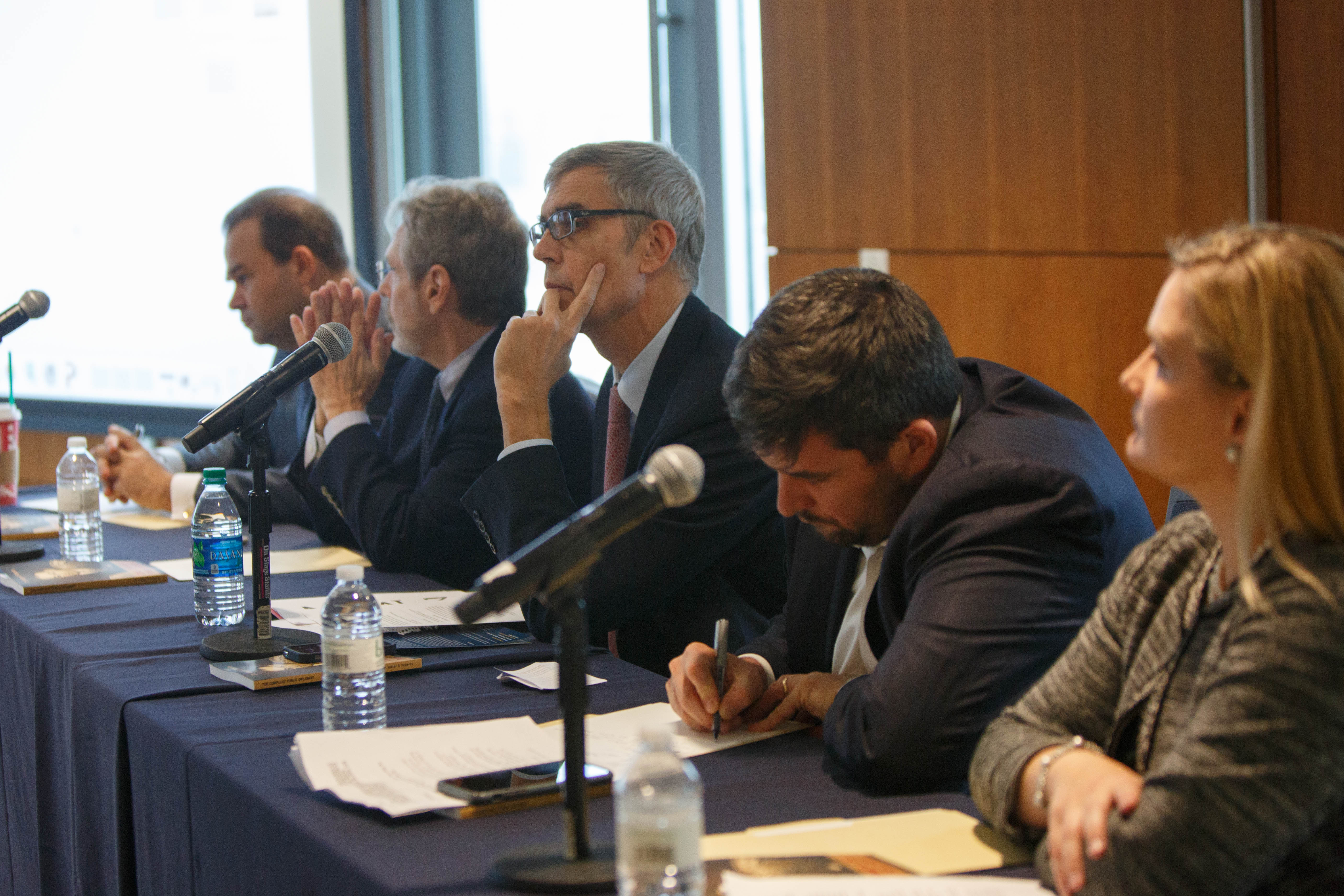
In honor of the Centennial of Walter Roberts’ birth, the Institute for Public Affairs and Global Communication and the Walter Roberts Endowment organized a panel on Challenges in the New Public Diplomacy Environment.
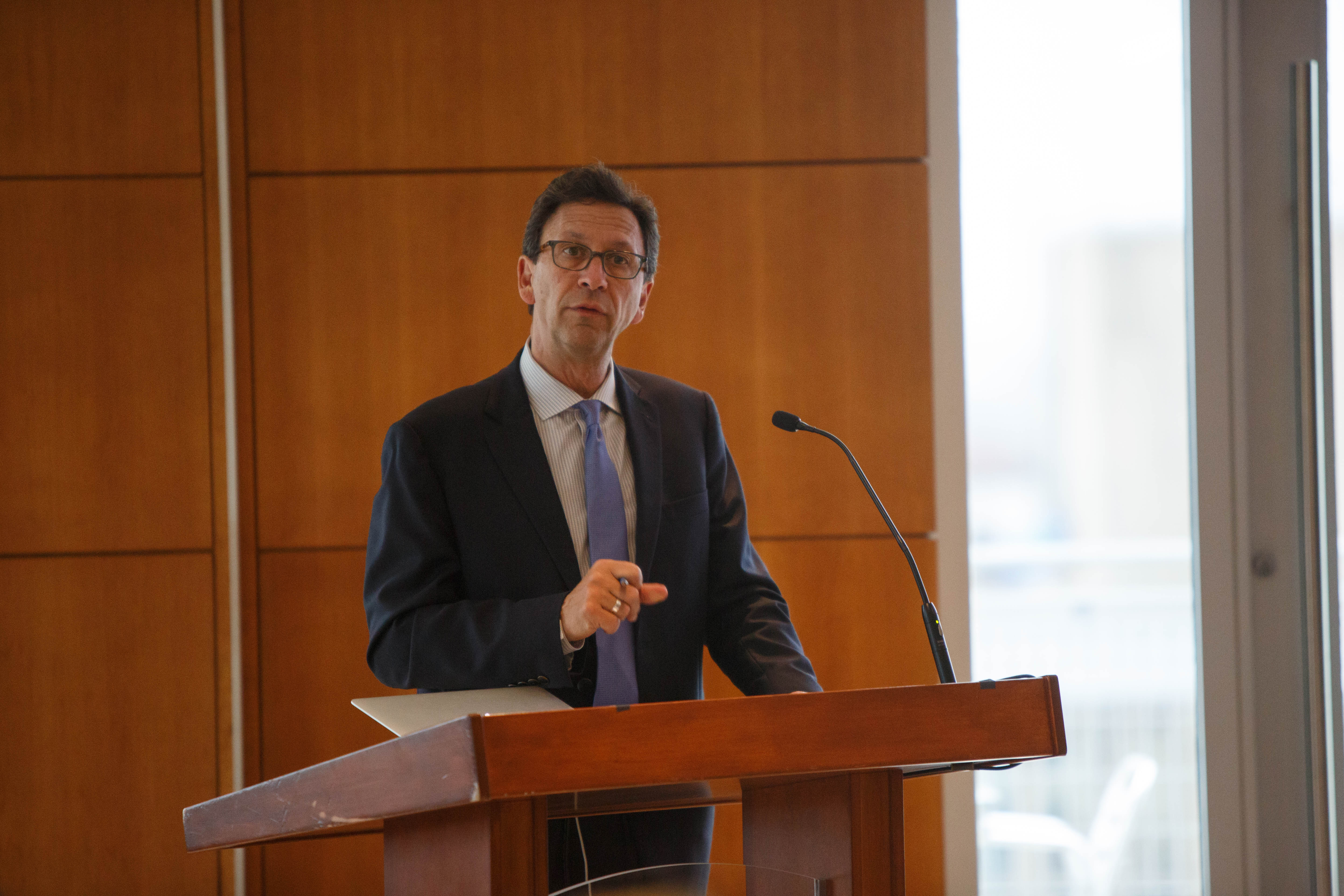
Honoring Walter Roberts and Navigating the New Media Landscape: Director of the School of Media and Public Affairs, Frank Sesno, introduced the program by recounting the contributions Walter Roberts has made to public diplomacy in general and George Washington University in particular. Mr. Sesno described how the new media age has transformed our lives, changed the way we obtain and share information, how we organize, mobilize and win. Each person now sustains a unique news feed and serves as his or her own executive producer, which upends old assumptions. The notion of objective journalism, of gate keepers, and even the notion of fact itself is being challenged as never before. Changes in public diplomacy reflect these changes in the real world, which the four panelists addressed.
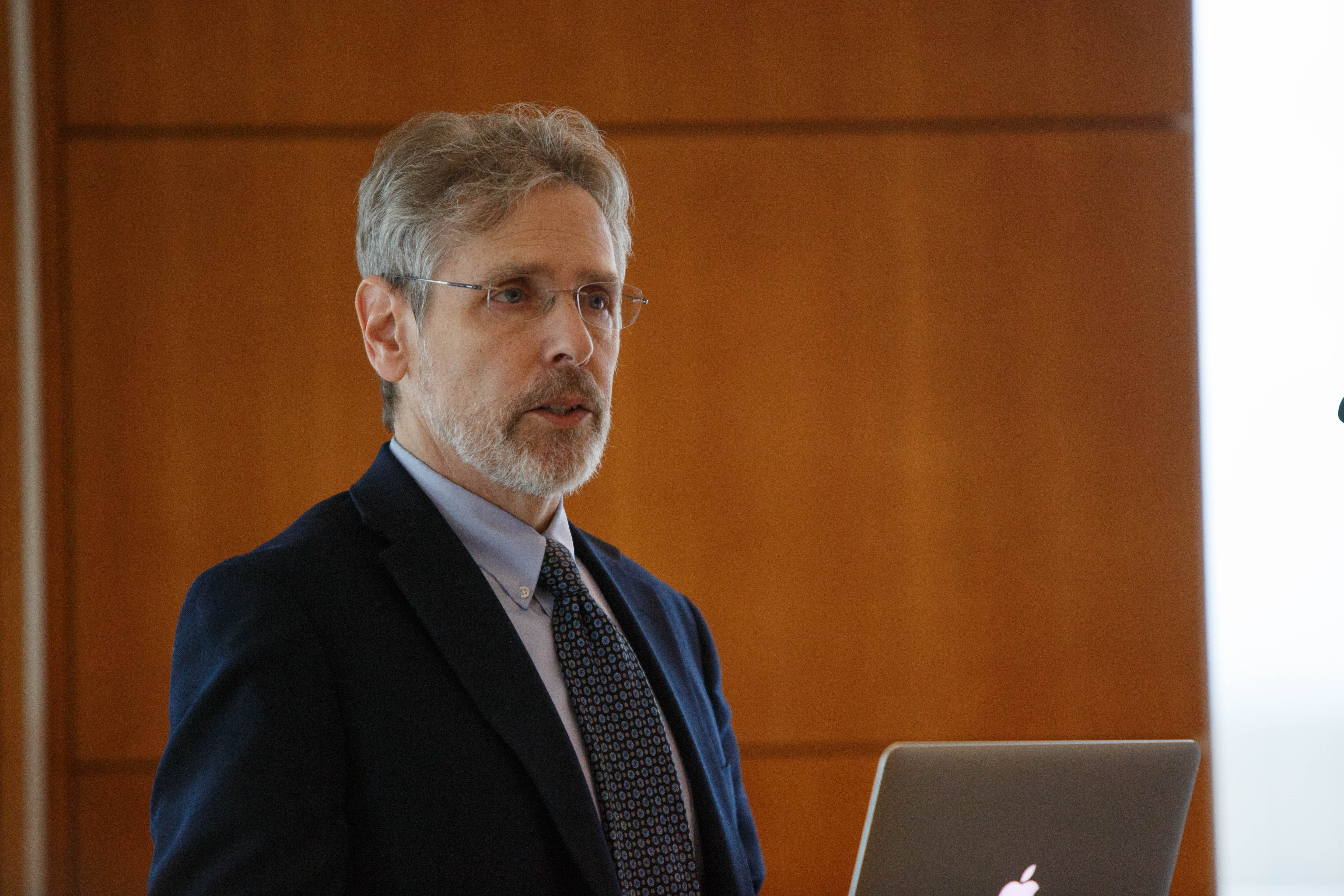
U.S. Media Diplomacy and Foreign Opinion: Emphasizing that there is nothing more practical than a good theory, George Washington University Professor Robert Entman presented an updated model showing how information cascades from elite government circles through the media to the public and back again in feedback loops complicated by the growing power of social media. It is difficult enough to explain when and why Americans support U.S. policy as leaders try to spread their interpretations or frames through a hierarchy of networks, complicated by the ability of leaders to now bypass gatekeepers such as the media by addressing the public directly through social media. Persuading foreign publics to adopt pro-American frames becomes even more complicated as more communication paths form. Foreign leaders and the elites need to be motivated and have the power to spread pro-American frames to their public and gatekeepers. The public needs to be receptive to these frames as well for public opinion to be moved. The challenge is particularly acute in countries and publics hostile to the U.S. but even in close allies the multiple paths and networks for information to flow complicate the mediated public diplomacy efforts of the modern diplomat.
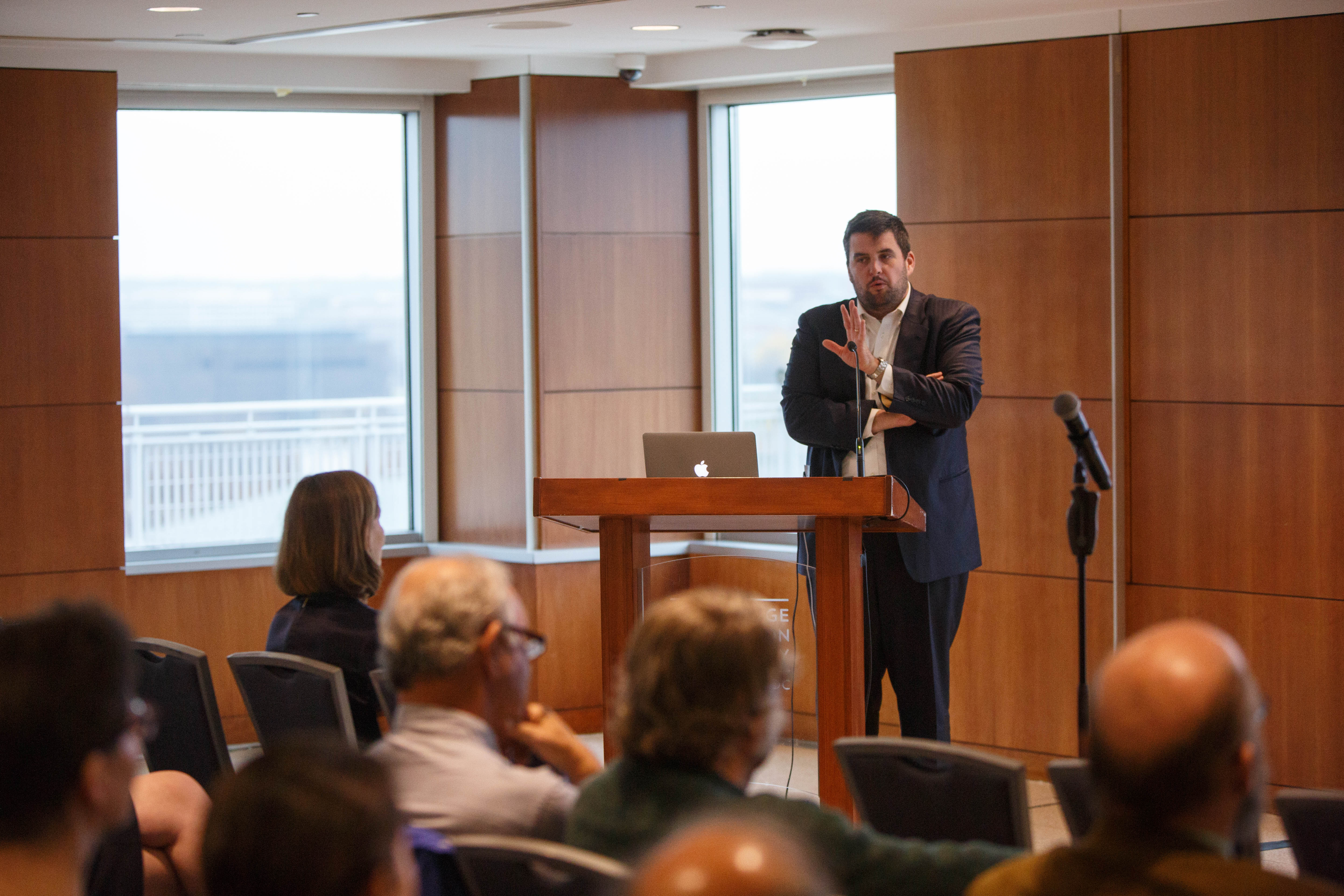
Connecting People to Policy – Leveraging Digital Tools/Social Media to Advance U.S. Foreign Policy: Macon Phillips, Coordinator of the United States Department of State Bureau of International Information Programs described three challenges facing public diplomacy at the Department of State: 1. thinking of policy in terms of objectives. Setting well defined, achievable objectives allows one to have an effective strategy and to measure success. This involves moving from telling people what they need to know to what they need to do. 2. Identifying priority audiences to achieve these objectives, which will affect even something as minor as putting together the traditional guest list. 3. Maintaining relations. One must maintain relationships and develop trust. The thousands of alumni of our international visitor and educational exchange programs should be viewed as allies and not just alumni. Nurturing and maintaining relationships will inoculate contacts, making them more resistant to disinformation. This will allow the USG to be less reactive and more proactive – a much better strategy.
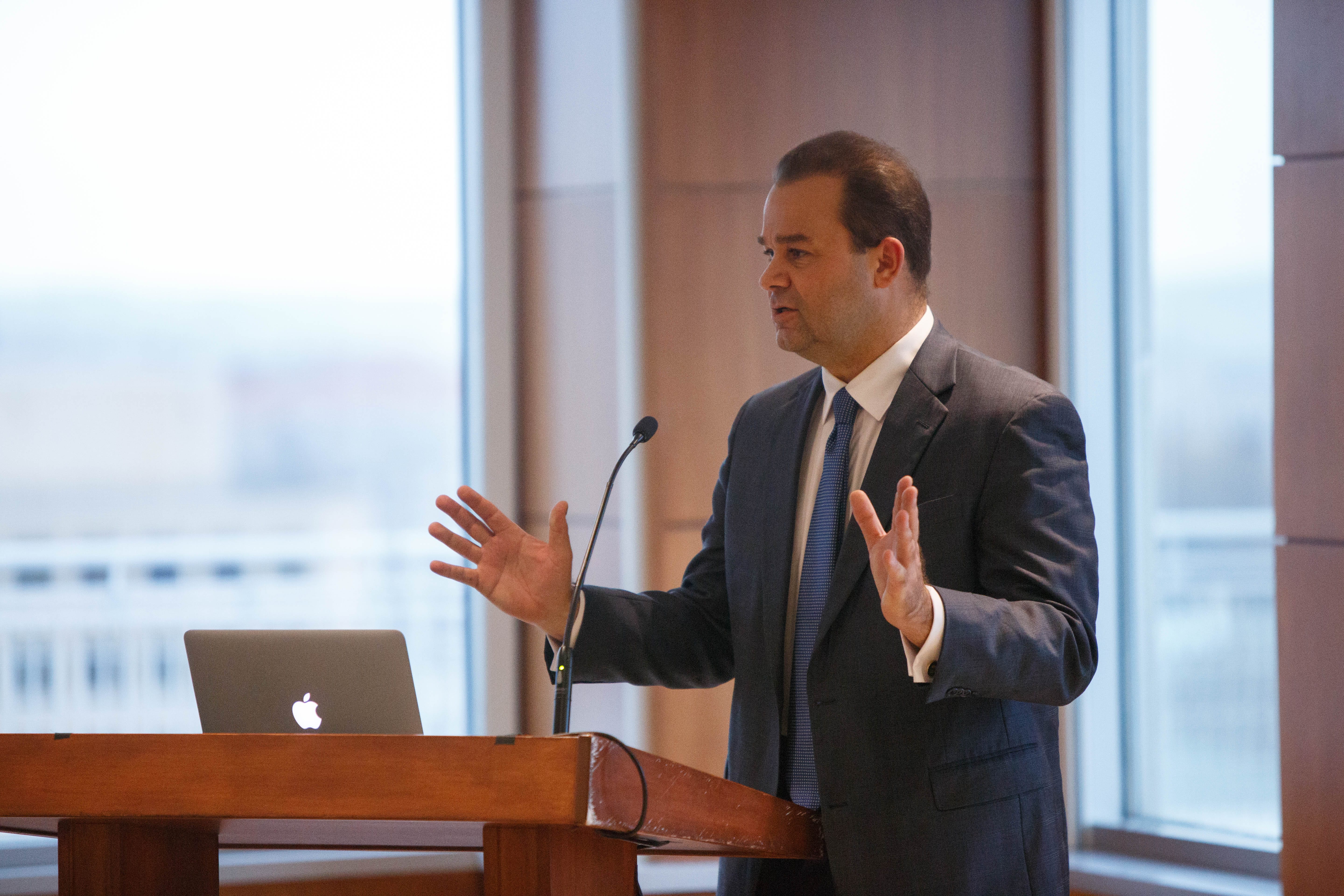
Reaching global audiences – A changing saga of platforms, paradigms, censorship and ever narrower echo chambers: André Mendes, Chief Information Officer and Chief Technology Officer of the Broadcasting Board of Governors André Mendes outlined three challenges. The first is budgetary, reaching out to the world while following Congressional and other mandates requiring continued investment in certain areas and technologies. The second is overcoming censorship with some of the most sophisticated censorship in the area of online software. BBG has the world’s largest anti-censorship operation with one trillion hits while continuing to overcome short wave and satellite censorship from countries such as Ethiopia and censorship of all kinds from countries ranging from Mali to Russia. The third challenge is the echo chamber effect, the fact that people naturally gravitate towards information they already believe in. The problem though is that every search we perform creates a micro environment as ads, articles, and preferences are directed to what we already like. The objective of online platforms is to make money by gathering clicks rather than to inform. Individuals from all corners of the world know that they can make money by generating clicks on our preferred platforms by writing articles that will outrage us even if not true. We are all willing accomplices by participating. Finally, Mr. Mendes described the progress the BBG had made in the last seven years, from 165 million monthly followers, mostly in radio to 270 million today, half TV and half radio and digital platforms. Given that this expansion has occurred under budget cuts of 150 million in an environment in which media in general is shrinking this is one of the world’s great success stories.
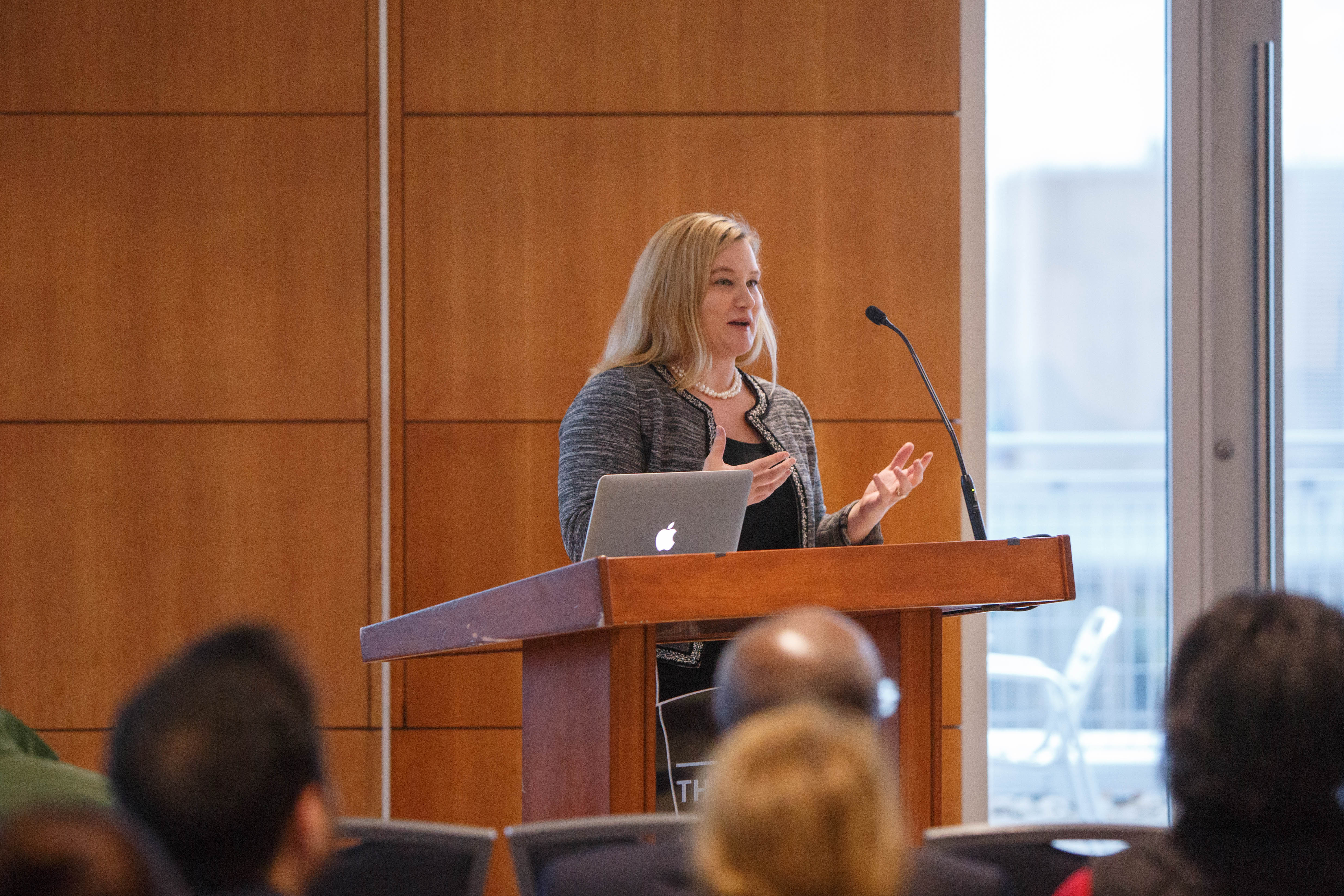
Public Diplomacy in a “Post-Truth” World: Andrea De Arment, incoming Information Officer and Spokesperson for the U.S. Embassy in Kathmandu Andrea De Arment emphasized that diplomats need to make the tough transition from a reliance on facts and figures to the realization that most people paying more attention to what people care about: feelings, personal beliefs, culture and religion. To be truly effective, PD professionals need to be at the table when policy is being made to make the decision makers aware how a given policy will be perceived in various regions of the world. One cannot be served a plate made in the policy making sausage factory with the mandate to make people think it is delicious. Successful public diplomacy must engage so that diplomats don’t just push out information but listen to what is coming back. Digital diplomacy also needs to entertain in a strategic manner. Soft diplomacy grows audiences but one needs to go where the audience is to engage. This requires leaving the safety of the walled compound to engage with the public to close the last three feet to use E Murrow’s phrase.
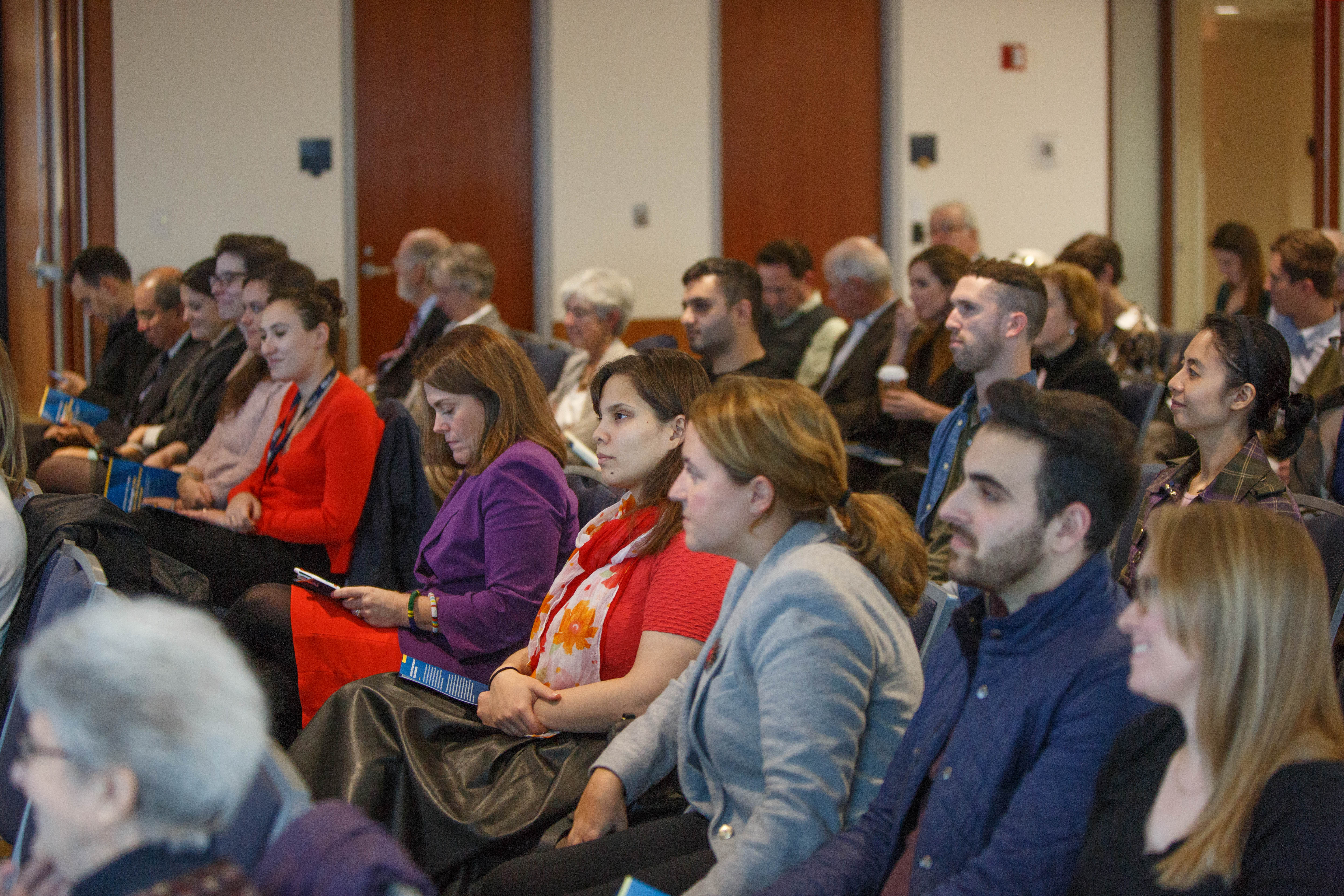
Discussion Session: The discussion session revolved around issues of building trust both within institutions and with the public at large. Our partners can carry our message sometimes even more effectively than we can, which is particularly important when working with hostile publics. Diplomats need to use social media not only to transmit messages but to listen and to engage in the necessary give and take which builds relationships. The best way to inoculate oneself from Fake News is build relationships of trust and to be credible sources. To keep up with rapid developments, the State Department needs to move from a default clear to a default open culture, which will improve efficiency and motivate employees. To be effective, one must have well defined goals of what success looks like, which also allows one to identify failure more easily. One needs to change in order to survive but innovations should not be made for innovation sake but to more effectively support U.S. policy goals.


1 thought on “Event Recap: Challenges in the New Public Diplomacy Environment”
A solid overview of the event. There were a variety of topics covered within this piece and I appreciated the organization of it all.The section about facts no longer having the same weight as emotions in the information landscape was very interesting and implicative. On that, here’s an interesting article from the New York Times that digs into many of these same concerns regarding the efficacy of fact based arguments in politics: https://www.nytimes.com/2016/11/06/upshot/fact-checking-can-change-views-we-rate-that-as-mostly-true.html?_r=2